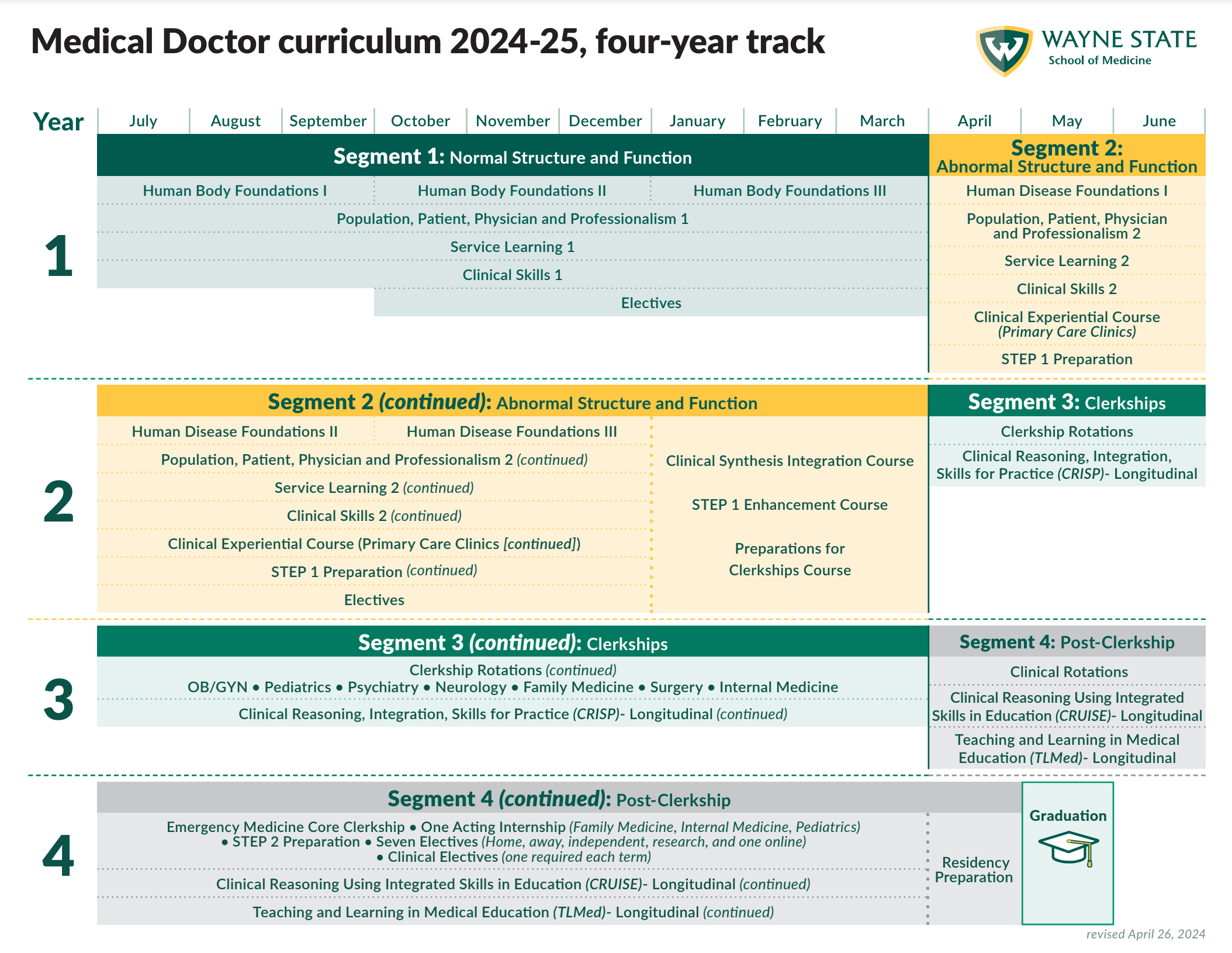Curriculum Overview
The Wayne State University School of Medicine (WSUSOM) is completing an historic and remarkable curriculum transformation. This redesign and re-engineering of the way we educate physicians-in-training is focused on real-world outcomes.
We are and we have been for 150 years, a reflection of the city where we live and learn Detroit. We are practitioners of the cutting-edge, but clinicians first and foremost. Medicine is constantly moving, and in the Motor City we know how to move fast.
Our evolutionary, yet revolutionary, curriculum design is guided by the physicians that we want to help our students become. The goals for each segment are concrete, yet we understand the necessity of integration across all years. Our revised curriculum emphasizes active learning and constant integration to build skills and knowledge simultaneously.
Clinical excellence, especially in a fast-paced urban environment, requires a highly integrated program of study designed to meet the needs of an ever-changing society. We know that our students are always ready to be involved, which is why we expect involvement from the start. This cohesive training is driven by experience and data, tuned with educational delivery expertise and fueled by the passion of our faculty and students.
Building on a 150-year tradition of excellence in education, research, care and service, the Highways to Excellence curriculum provides students with:
- An organ systems-based curriculum that integrates clinical experiences with basic sciences from day one, utilizing the most advanced methods of teaching to allow for development of a cohesive class of students who learn and work together as professionals in training
- A focused clinical skills course
- A deep and authentic understanding of health needs and social determinants gained from education by physician leaders who are actively making differences in the community
- Multiple ways to take advantage of experiential service-learning, community engagement and research opportunities via individualized elective tracks, and strong academic, health care and community partnerships
- A longitudinal focus on professionalism that stresses high quality and compassionate care, cultural humility and a commitment to decreasing health disparities
- Opportunities to become skilled in teaching and medical education
- Continuous quality improvement and curricular assessment efforts that ensure the best student experience possible
